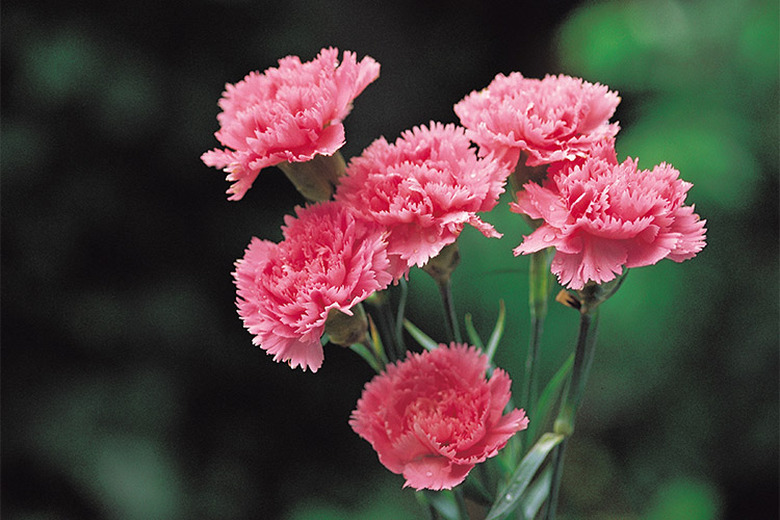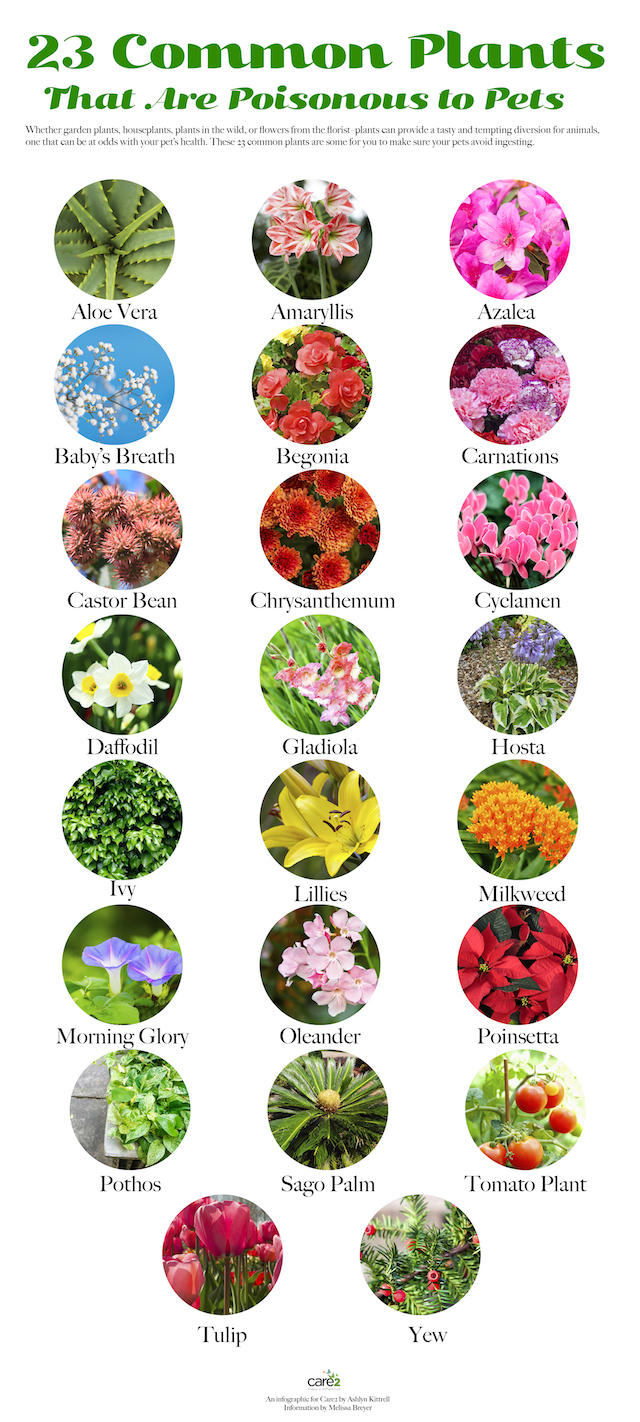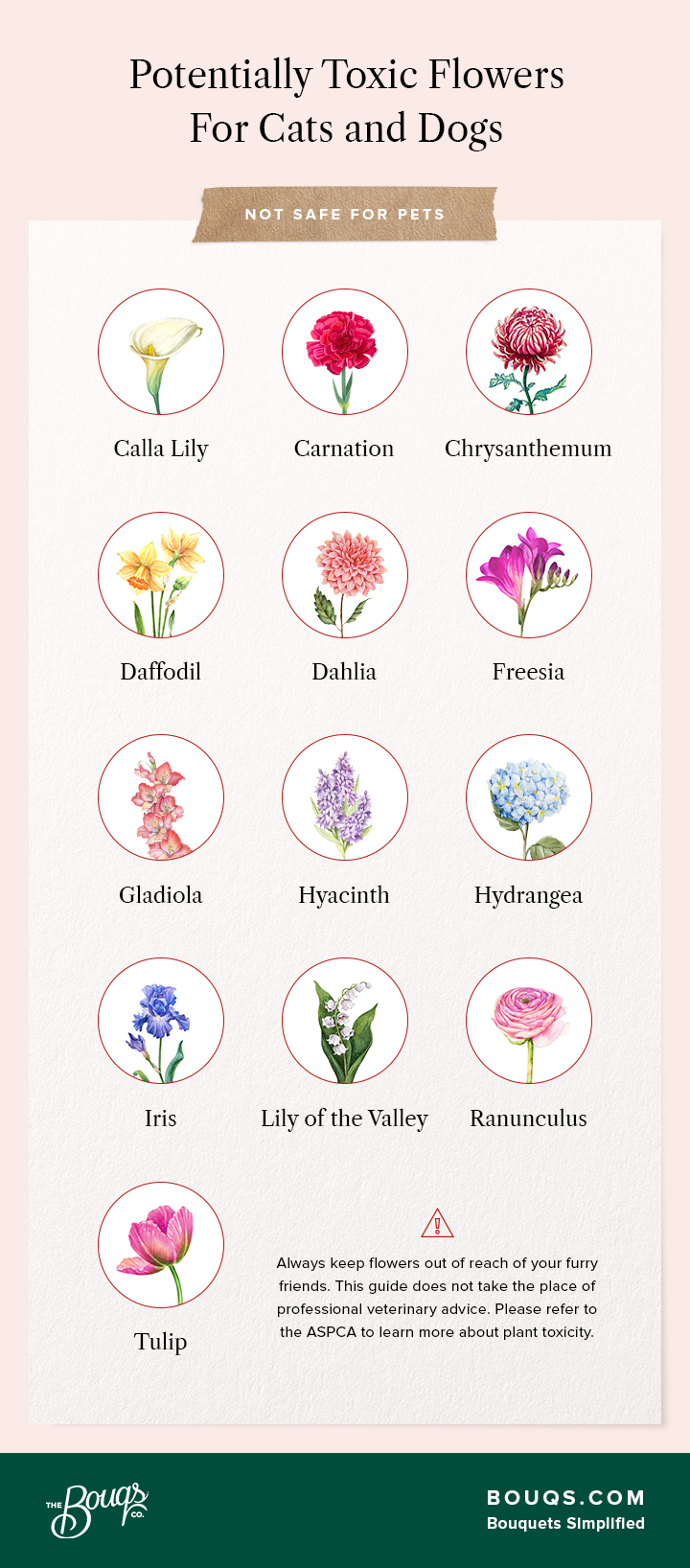Carnations are mildly toxic to dogs. Consuming them may cause stomach upset.
Symptoms can include vomiting or diarrhea, which are common signs of mild plant poisoning in dogs. Pet owners often admire the beauty of carnations. These flowers are popular in gardens and bouquets. But their presence can be risky for dogs.
Curious pups may nibble on these colorful blooms. This can lead to discomfort. Knowing which plants are safe is vital for pet safety. Carnations contain compounds that can upset a dog’s stomach. It’s important to monitor your dog around these plants. Understanding the risks can help prevent health issues. This knowledge ensures that your furry friend stays healthy and happy. Always consult a vet if you’re unsure about plant toxicity. Keeping your dog safe is a top priority.

Credit: www.cuteness.com
Carnations And Canine Safety
Carnations are popular in gardens and bouquets. Their vibrant colors attract many. But are these flowers safe for dogs? This is a question many pet owners ask. It’s important to know which plants can harm our furry friends.
Dogs often explore with their mouths. They might chew on leaves or flowers. Understanding plant safety is vital for their health. Let’s explore if carnations pose any risks.
Common Household Plants
Many homes have plants like lilies, roses, and ferns. These plants add beauty to our spaces. But not all are safe for pets. Some can cause discomfort or illness in dogs.
Carnations are found in many households. Their scent and appearance are appealing. But they might not be the best choice for homes with dogs. Knowing which plants are safe helps prevent accidents.
Potential Risks For Pets
Carnations contain substances that can upset a dog’s stomach. These substances may cause mild symptoms. Dogs might experience vomiting or diarrhea if ingested. These symptoms are usually not life-threatening.
It’s crucial to monitor your pets around plants. If your dog shows symptoms, contact a vet. Keeping carnations out of reach can help. Ensure your pet’s environment is safe and secure.

Credit: italyforyou.com
Carnations: Toxicity Levels
Carnations can be mildly toxic to dogs, causing digestive upset. Symptoms include vomiting, diarrhea, or drooling. Keep carnations out of reach to ensure your pet’s safety.
Carnations are popular in gardens and bouquets. They add vibrant color. Despite their beauty, they pose risks to pets. Understanding their toxicity is vital for pet safety. Carnations contain substances harmful to dogs. Knowing the chemical components and effects helps protect your furry friend.Chemical Components
Carnations contain triterpenoid saponins. These are the primary toxic elements. Saponins are naturally occurring in many plants. They deter pests but harm animals. Dogs react negatively to saponins. Even small amounts cause discomfort. The toxicity level varies among carnation types. Some are more potent than others.Effects On Dogs
Dogs ingesting carnations show symptoms quickly. Symptoms include vomiting and diarrhea. Drooling is another common sign. Dogs may also experience skin irritation. If ingested, immediate care is crucial. Larger quantities lead to severe distress. Consult a vet if symptoms persist. Keeping carnations out of reach is wise. This prevents accidental ingestion and protects your pet.Symptoms Of Carnation Poisoning
Are carnations harmful to your dog? It’s essential to know the symptoms. Dogs are curious and might ingest plants unknowingly. Carnations can cause mild poisoning in dogs. Recognizing symptoms early can prevent serious health issues.
Digestive Distress
Digestive problems often indicate carnation poisoning in dogs. Vomiting is a common symptom. Diarrhea may also occur, causing discomfort. Loss of appetite is another sign. Dogs may refuse their favorite foods. Keep an eye on excessive drooling. It suggests irritation in the digestive tract.
Skin Reactions
Skin issues can arise from contact with carnations. Watch for redness on your dog’s skin. Itching can become intense and troublesome. Your dog may scratch frequently. This can lead to skin damage or infection. Rashes might develop on exposed areas. They often appear pink or red.
Immediate Actions For Poisoning
Dogs are curious creatures, often exploring their surroundings with their mouths. Carnations, while beautiful, can be toxic to dogs. Understanding immediate actions for poisoning is crucial. This section provides essential first aid steps and guidance on when to call a vet.
First Aid Steps
Remove the carnation from your dog’s mouth immediately. Check for any remaining bits. Rinse your dog’s mouth with clean water gently. Offer water to drink. It helps flush out toxins. Avoid inducing vomiting without vet advice.
When To Call A Vet
Observe your dog closely after exposure. Signs of poisoning might include vomiting, drooling, or lethargy. If symptoms appear, contact your vet promptly. Time is crucial for effective treatment. Describe the situation clearly to the vet. Provide details about the carnation ingestion. Follow the vet’s instructions carefully. Your dog’s health depends on quick action.
Long-term Health Impacts
Carnations are beautiful flowers. Yet, they might be harmful to dogs. Ingesting them can cause short-term problems. But what about long-term impacts? Understanding these effects is crucial. Dogs may face ongoing health challenges. Knowing the signs helps pet owners take action.
Chronic Conditions
Repeated exposure to carnations may lead to chronic issues. Digestive problems can persist over time. Your dog might suffer from frequent stomach pain. Diarrhea can become a regular occurrence. Skin irritations might also develop. These conditions can affect a dog’s quality of life.
In some cases, allergies might worsen. This makes your dog more sensitive. The immune system can weaken. Long-term ingestion may lead to liver problems. It’s vital to be aware of these potential risks.
Monitoring Recovery
After exposure, monitor your dog’s recovery closely. Keep track of any recurring symptoms. Watch for changes in behavior or appetite. A vet should examine any persistent issues. Regular check-ups help in identifying chronic conditions early.
Ensure your dog stays hydrated. Provide a balanced diet to support recovery. Minimize stress and provide a calm environment. This aids in healing and prevents further complications. Vigilance is key to your dog’s health.
Safe Alternatives To Carnations
Carnations can be harmful to dogs. Finding safe plant alternatives is crucial for pet owners. Choose plants that are non-toxic and add beauty to your home.
Pet-friendly Plants
Some plants are safe for dogs. Consider African violets. They have vibrant colors and are harmless. Spider plants are another choice. They are easy to care for. Bamboo palms are also dog-friendly. They purify the air and are safe.
Creating A Safe Environment
Safety is key for your pets. Place plants out of reach. Dogs may chew leaves. Use hanging pots or high shelves. Check labels before buying plants. Ensure they are non-toxic. Regularly inspect plants for damage. Remove any broken leaves.
Preventing Plant Poisoning
Carnations can be mildly toxic to dogs. Symptoms may include gastrointestinal upset and skin irritation. Always keep an eye on playful pups around plants.
Preventing plant poisoning in dogs is crucial to ensure their safety and well-being. Carnations, though pretty, can pose a risk to your furry friend. The good news is that with a few practical steps, you can keep your dog safe from this common household plant. ###Training Dogs
Training your dog is the first line of defense against plant poisoning. Teach them basic commands like “leave it” or “drop it” to prevent them from munching on potentially harmful plants. Consistent training sessions will reinforce these commands, ensuring your dog understands what to do when they encounter something they shouldn’t eat. Consider enrolling your dog in an obedience class for more structured learning. This can also provide socialization opportunities, making the experience beneficial in multiple ways. Remember, a well-trained dog is not only safer but also happier. ###Household Precautions
Take a good look around your home and garden. Identify all the plants you have and research if any are toxic to dogs. Place any risky plants, like carnations, out of reach or in a room your dog cannot access. Use barriers such as pet gates to keep curious noses away from plants. You could also create a dedicated dog-friendly zone with safe plants or artificial greenery. This way, your dog can still enjoy exploring without the risk of ingesting harmful substances. Have you ever caught your dog eyeing your favorite potted plant? By taking these simple precautions, you can rest easy knowing your pet is safe. Your proactive steps can make a significant difference in preventing plant poisoning.Expert Advice And Resources
Understanding the effects of carnations on dogs is crucial for pet owners. Expert advice and resources can help ensure your furry friend’s safety. Knowing what to do if your dog encounters carnations is vital. Below, you will find valuable insights from veterinarians and helpful guides.
Veterinary Insights
Veterinarians agree that carnations can be harmful to dogs. They might cause mild symptoms like vomiting or diarrhea. If your dog eats a carnation, consult your vet immediately. Prompt action can prevent more serious health issues. Veterinarians can provide specific advice based on your dog’s condition.
Helpful Guides And Contacts
Numerous guides and contacts are available for pet safety. The ASPCA and Pet Poison Helpline offer detailed resources. These platforms provide step-by-step instructions in case of ingestion. They also have hotlines for immediate assistance. Keeping their contact information handy is a wise choice for pet owners.

Credit: bouqs.com
Frequently Asked Questions
What Happens If A Dog Eats A Carnation?
Carnations can cause mild toxicity in dogs. Symptoms may include vomiting, diarrhea, and skin irritation. Contact your vet if symptoms persist.
What Part Of The Carnation Is Poisonous?
The petals of the carnation are mildly poisonous to pets and humans. They can cause skin irritation and digestive issues. Keep them out of reach of children and pets to ensure safety. Always consult a medical professional if ingestion occurs.
What Flowers Are Poisonous To Dogs?
Several flowers are toxic to dogs. Common ones include lilies, daffodils, tulips, azaleas, and chrysanthemums. Keep these away to ensure your pet’s safety.
Are Carnations Ok For Dogs?
Carnations are toxic to dogs. They can cause mild gastrointestinal issues like vomiting or diarrhea if ingested. Keep carnations out of your dog’s reach to avoid any health problems. Always consult your vet for guidance regarding safe plants for pets.
Conclusion
Carnations pose a mild risk to dogs. Pet owners should stay alert. Chewing or ingesting carnations can cause discomfort. Symptoms like vomiting or diarrhea may occur. It’s best to keep carnations out of reach. Always consult a vet if your dog eats them.
Safe environments promote healthy pets. Enjoying flowers safely is possible with care. Awareness and precautions make a big difference. Protecting pets ensures their happiness and well-being. Keep your furry friend safe around plants. Knowing what’s harmful helps prevent issues. Your dog’s health is the top priority.